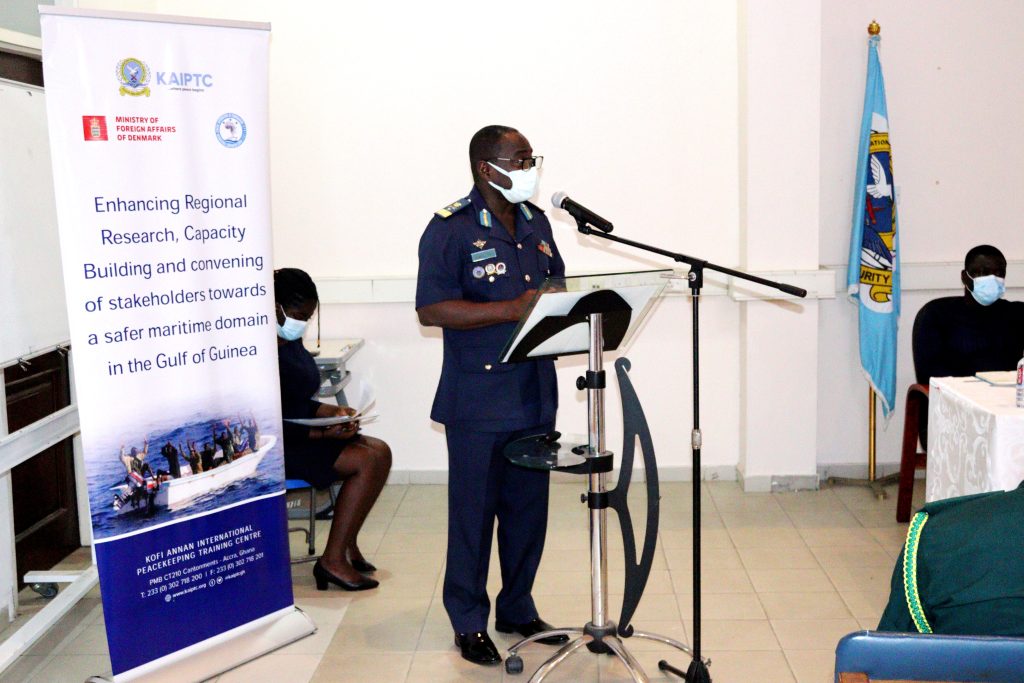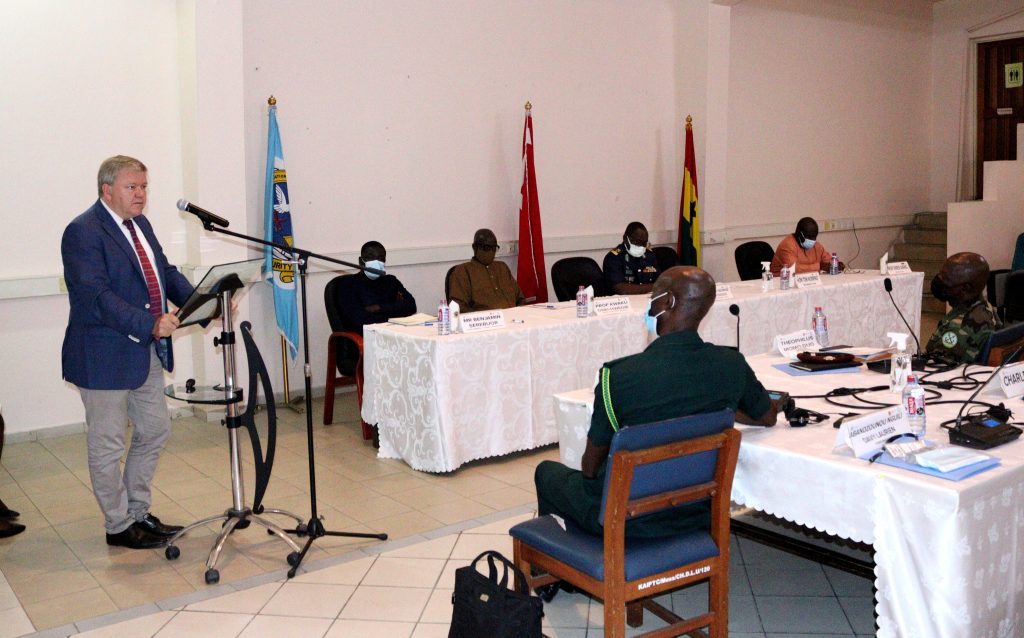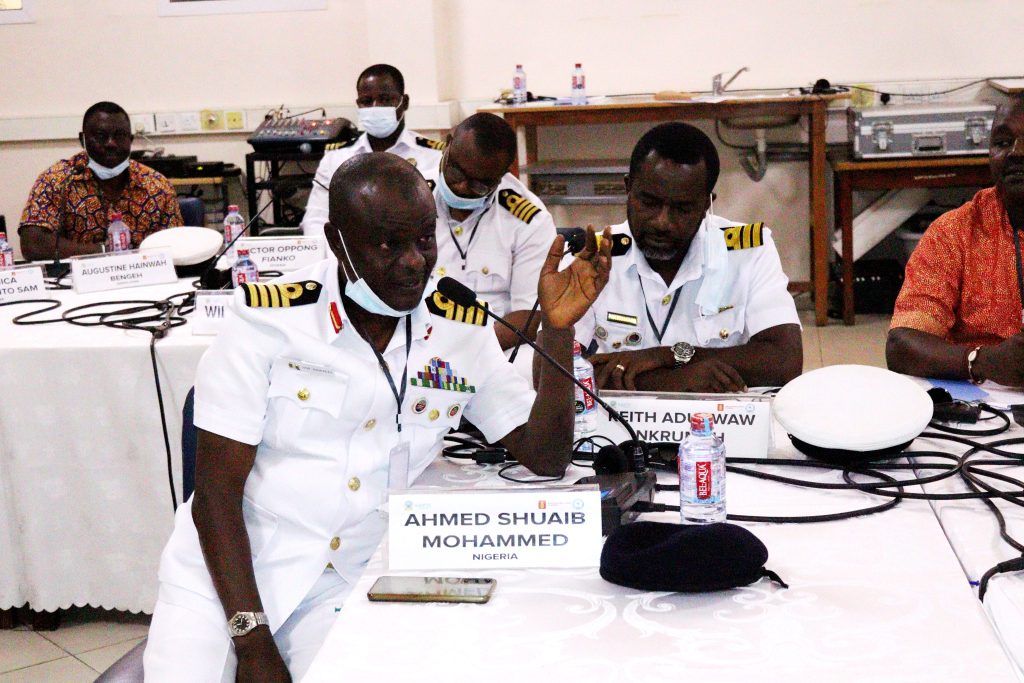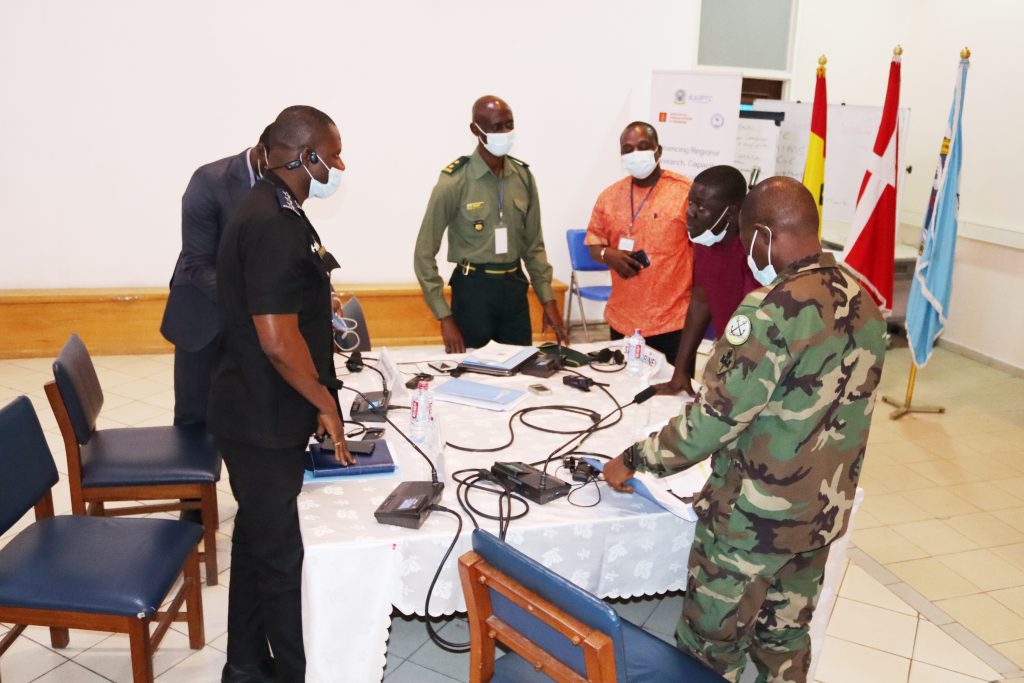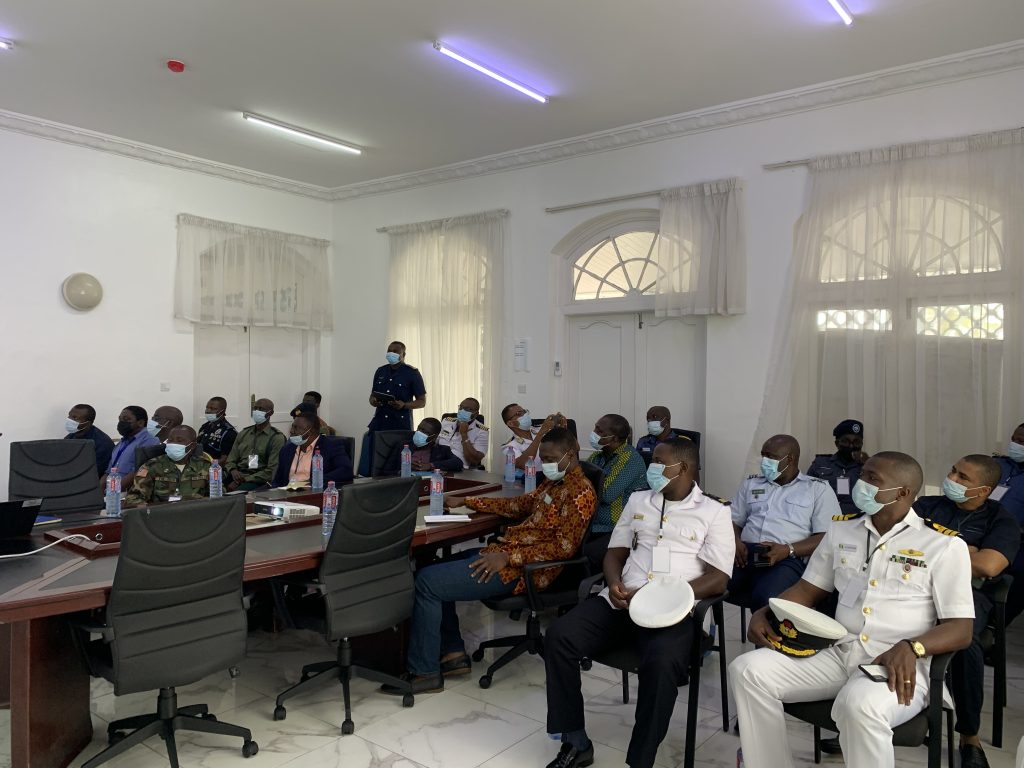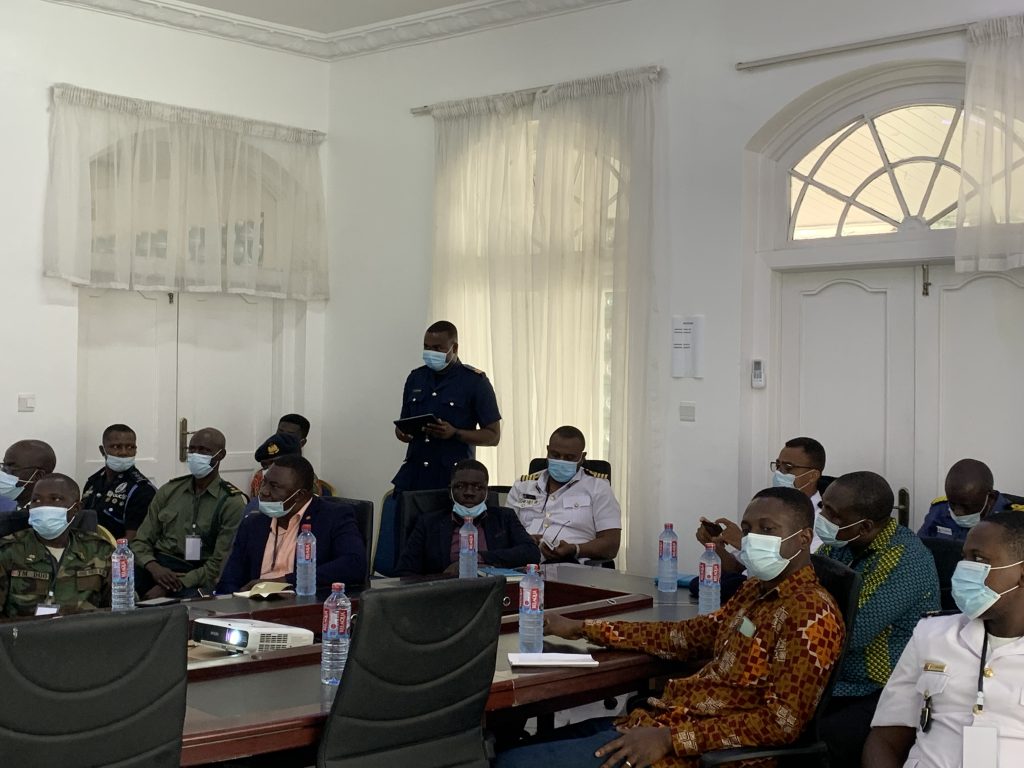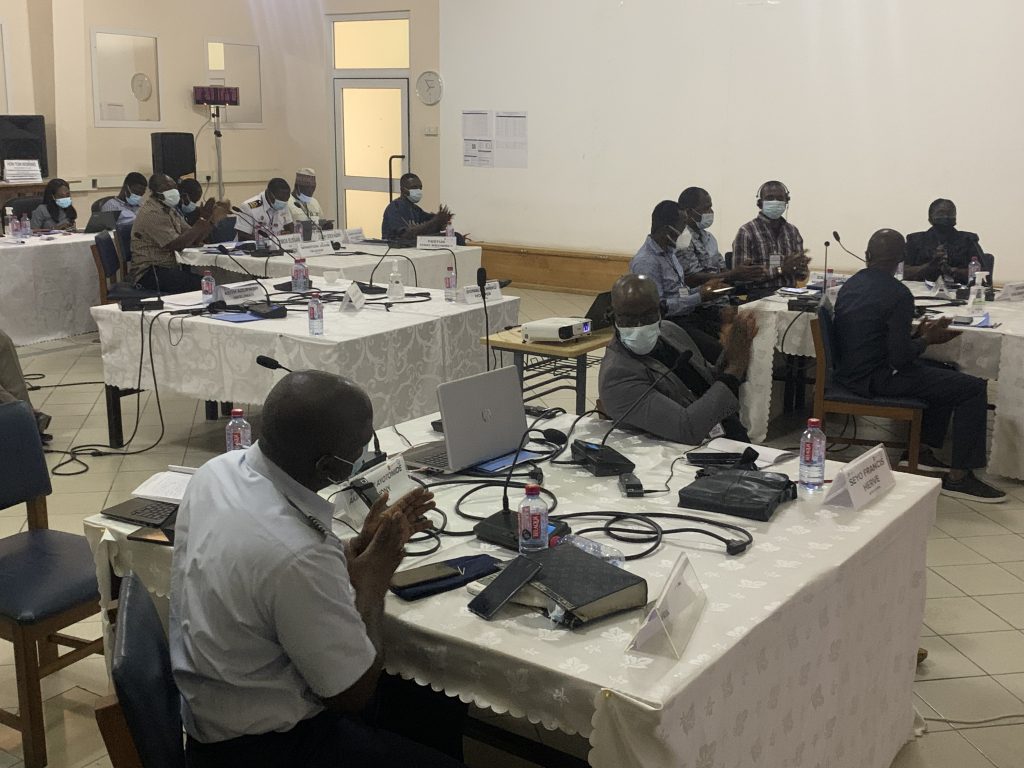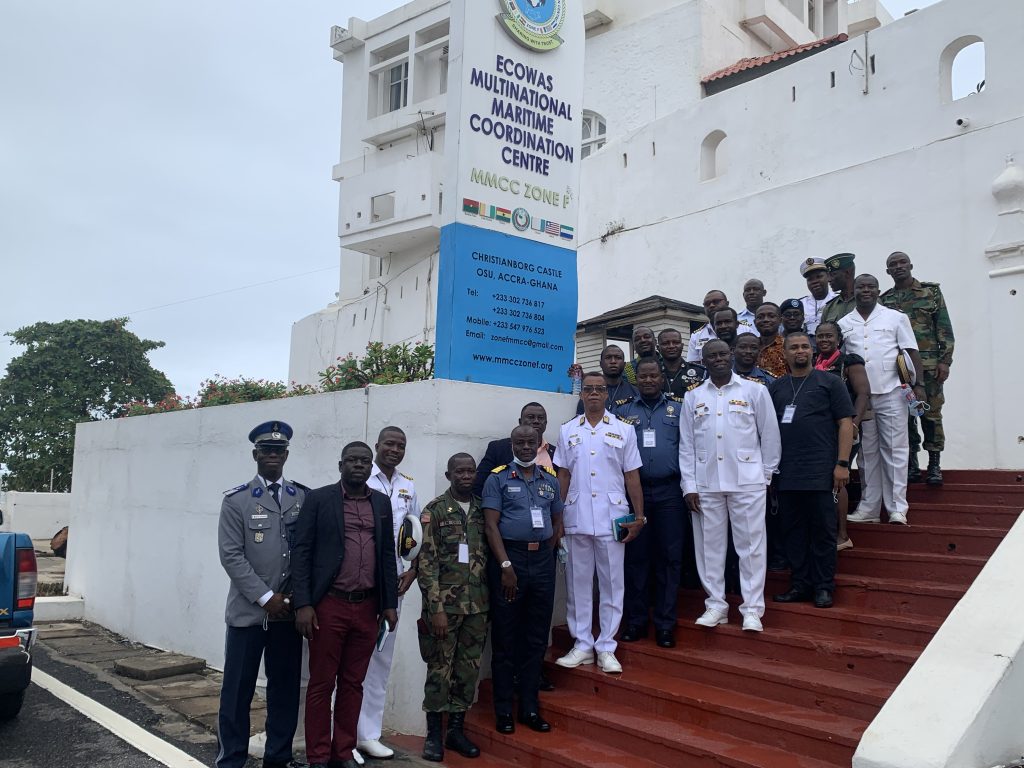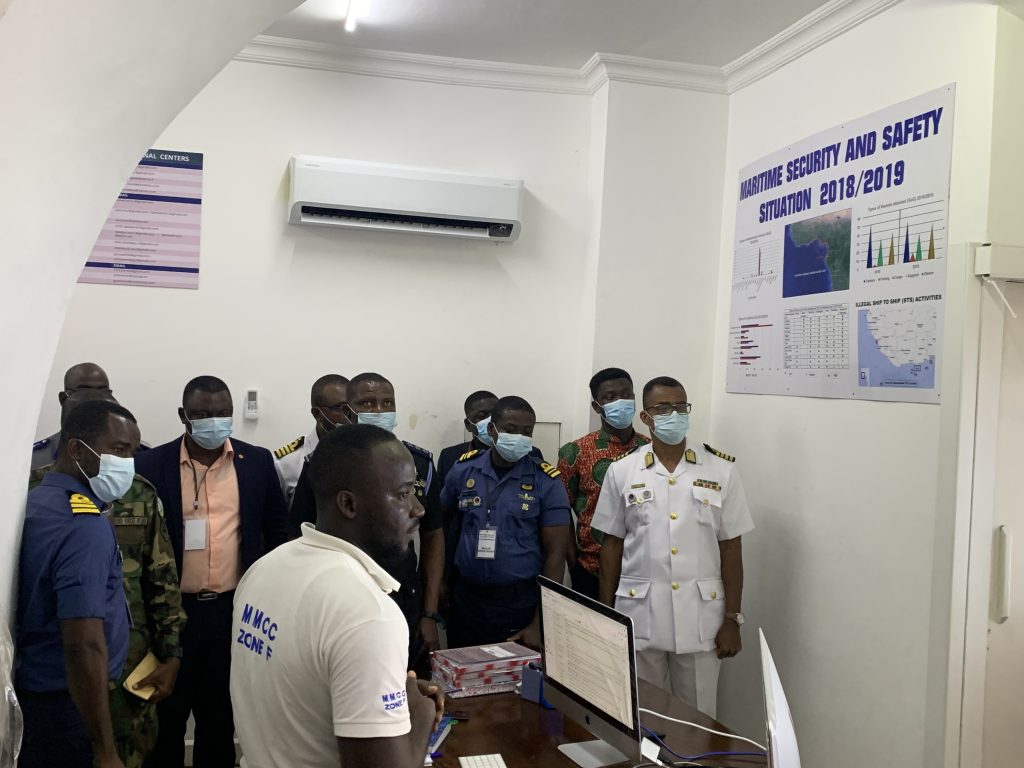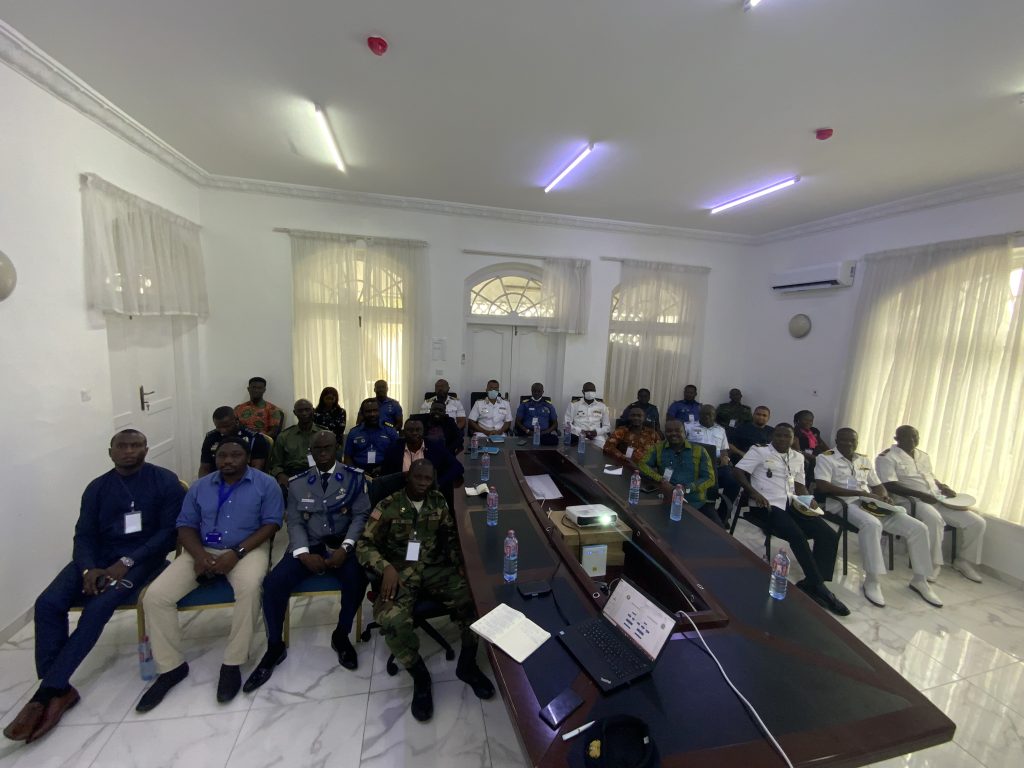6-15 September, 2021. KAIPTC
The Kofi Annan International Peacekeeping Training Centre in collaboration with the Government of Denmark organized the Developing Maritime Security Culture in the Gulf of Guinea course from 6th to 15 September, 2021 at the KAIPTC premises. The course had in attendance 21 participants from 7 Western and Central African countries which include Benin, Congo-Brazzaville, Cote D’Ivoire, Ghana, Nigeria, Liberia, Sierra Leone and Togo. The trainees who were made of 19 males and 2 females were drawn from institutions that play diverse role in promoting maritime security in the Gulf of Guinea. They include the Navy, Marine Police, Justice Ministry, Air force, Gendarmerie, Narcotics Control Authority, Immigration, Army, Maritime Authorities among others. The course constituted the sixth capacity building activity under the KAIPTC-Denmark Maritime Security Project on Enhancing regional research, capacity building and convening of stakeholders towards a safer maritime domain in the Gulf of Guinea” funded by the Government of Denmark.
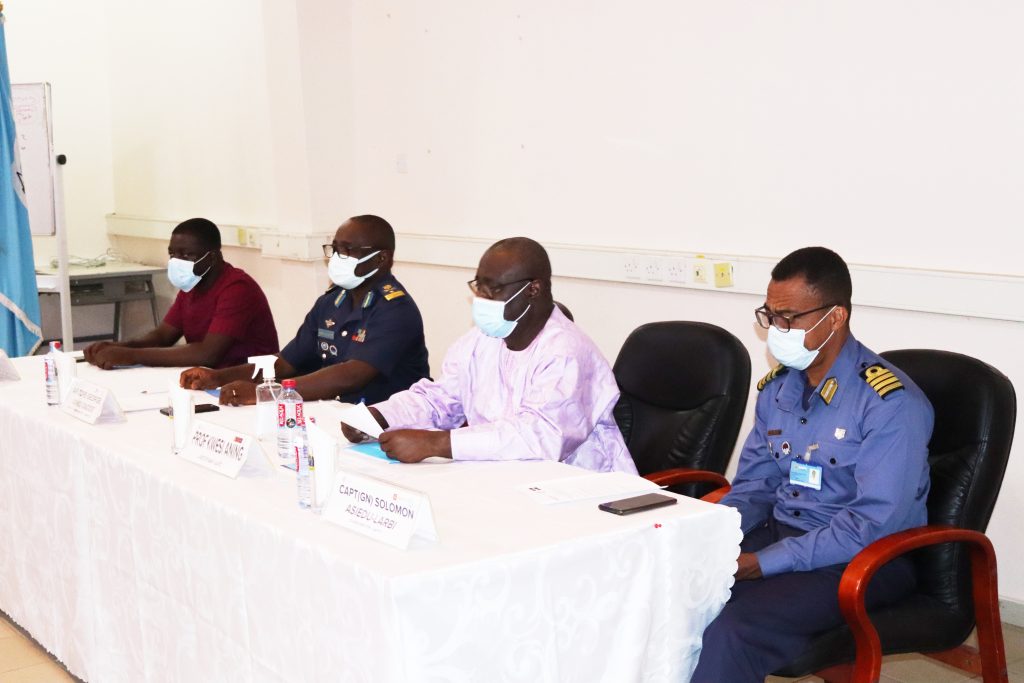
At the opening ceremony of the course was the Deputy Commandant of the Kofi Annan International Peacekeeping Training Centre, Air Commodore George Arko Dadzie, Ambassador of Denmark to Ghana, His Excellency Tom Norring, Prof. Kwesi Anning, Director of Academic Affairs and Research at the KAIPTC and Prof. Kweku Hwedie, Dean of academic programmes at the KAIPTC. In delivering his opening remarks, Prof. Kwaku Hwedie mentioned that maritime crimes have become a major security concern for countries along the Gulf of Guinea coast and therefore require the attention of both regional and international development partners in working towards improving maritime security in the region. He therefore expressed his delight for the collaboration between the KAIPTC and the Danish Government to contribute to improving knowledge and skills of actors who are engaged in the fight against maritime criminalities in the region. His Excellency Tom Norring, in his speech noted that the problem of maritime insecurity has both regional and global dimensions and called for collaboration and cooperation between regional and international stakeholders in fighting existing and emerging maritime crimes in the GoG region. Continuing with his speech, he mentioned that Denmark will continue to support initiatives that will strengthen the maritime framework in the countries of operation to promote economic growth whilst ensuring maritime security in the Gulf of Guinea. Next on the agenda was the Deputy Commandant of the KAIPTC who delivered the opening remarks for the training. Beginning with his speech, the Deputy Commandant noted that in the face of mounting criminality and more sophisticated maritime pirates in the GoG, an all hands on deck approach is needed now more than ever to reduce the activities of pirates. He continued by highlighting the recent pirate attacks in the region and talked about the efforts being made at the national, region and international level to suppress piracy and maritime crimes in the Gulf of Guinea. Specifically, he mentioned the deep blue project being implemented by the Government of Nigeria and the Gulf of Guinea declaration on the suppression of piracy which was signed by over 350 stakeholders from the shipping industry around the globe, including the A.P. Moller-Maersk of Denmark. He concluded his speech by welcoming the participants into the KAIPTC fraternity and encouraged them to share experiences and ideas during the sessions.
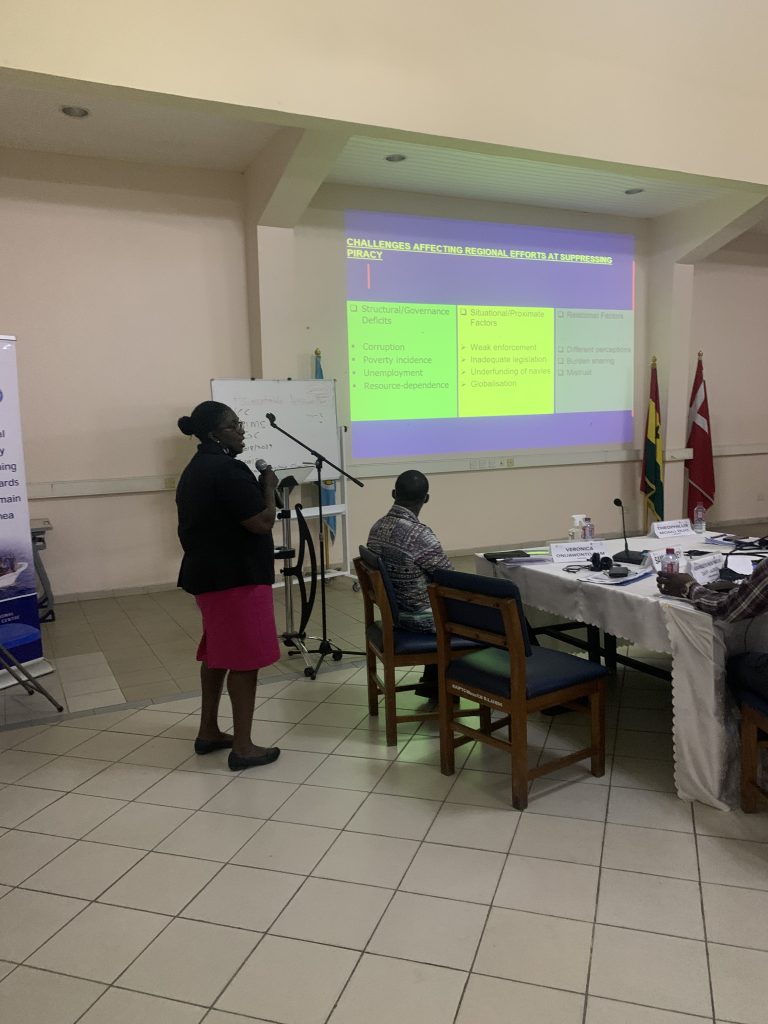
During the 8-day training, participants were taken through various modules which focus the maritime security challenges in the Gulf of Guinea, the emerging dynamics of the maritime security situation, measures that have been put in place by national, regional and international stakeholders to improve maritime security in the Gulf of Guinea. The first module of the course, titled “understanding insecurities in the Gulf of Guinea, highlighted the concept of collective-based security and explained that states in the Gulf of Guinea generally lack sufficient military and civilian assets to secure their individual maritime domains which underscores the importance and the need for national, regional and international collaboration and cooperation in fighting piracy and other maritime crimes in the Gulf of Guinea. The module also exposed the participants to the background to the current maritime situation in the Gulf of Guinea, the different types crimes which have been occurring the GoG including piracy, armed robbery at sea, Illegal, Unregulated and Unreported Fishing, drug and human trafficking and human smuggling among others.
The second module focused on the policy and legal frameworks on maritime security in the Gulf of Guinea. The module highlighted the evolution of the normative frameworks governing maritime security in the Gulf of Guinea. The module detailed the United Nations, African Union and Economic Community of West African States and the Economic Community of Central African States on Maritime Security. The Yaoundé Process and Code of Conduct and national frameworks and strategies. The other modules of the course include Managing relationship and inter-agency collaboration, Maritime Intelligence, Information Sharing and Management, Responses to Maritime Threats in the Gulf of Guinea, Incident Reporting Mechanisms in the Gulf of Guinea and Mapping Maritime Actors in the Gulf of Guinea.
The course also included group exercises where participants were divided into 3 groups and giving assignments which aimed at measuring the participants understanding of the maritime security issues and response mechanism in the Gulf of Guinea which were discussed during the theoretical session of the training. After the assignment, each of the groups were given 45 minutes to make a presentation on their assignment after which the floor was opened for questions and responses. This session created the opportunity for both the participants and the facilitators to have detailed discussions which enhanced the understanding of the maritime security challenges and response mechanism in the Gulf of Guinea.
The course participants also visited the Multinational Maritime Coordination Centre (MMCC) Zone F at Osu Castle, Accra. During the visit, a staff of the Centre made a presentation on the mandate and the focus of the MMCC Zone. The presentation highlighted the Gulf of Guinea maritime threat trends between 2012 and 2021, the unique characteristics of the pirates and the modus operandi of the activities of the pirates. The presenter also touched on the response mechanism established at the national and regional level to deal with the challenges of piracy and other maritime crimes in the Gulf of Guinea.
The eight-day training came to an end on the 15 of September, 2022. The closing ceremony started with a presentation of certificates to the participants which was followed by remarks from the Director of Academic Affairs and Research of the KAIPTC, Prof. Kwesi Aning. Prof. Aning in his remarks noted that the maritime crimes in the Gulf of Guinea presents not only security challenges but also negative economic impact on the countries in the region. He mentioned that the reduction in the number of piracy attacks in the Gulf of Guinea demonstrate that improved collaboration and cooperation between national, regional and international actors and stakeholders will enhance maritime security in the region. Prof. Aning therefore advised the participants to use the knowledge they have acquired from the training to implement and support initiatives that will promote collaboration and cooperation and the overall security in the Gulf of Guinea.
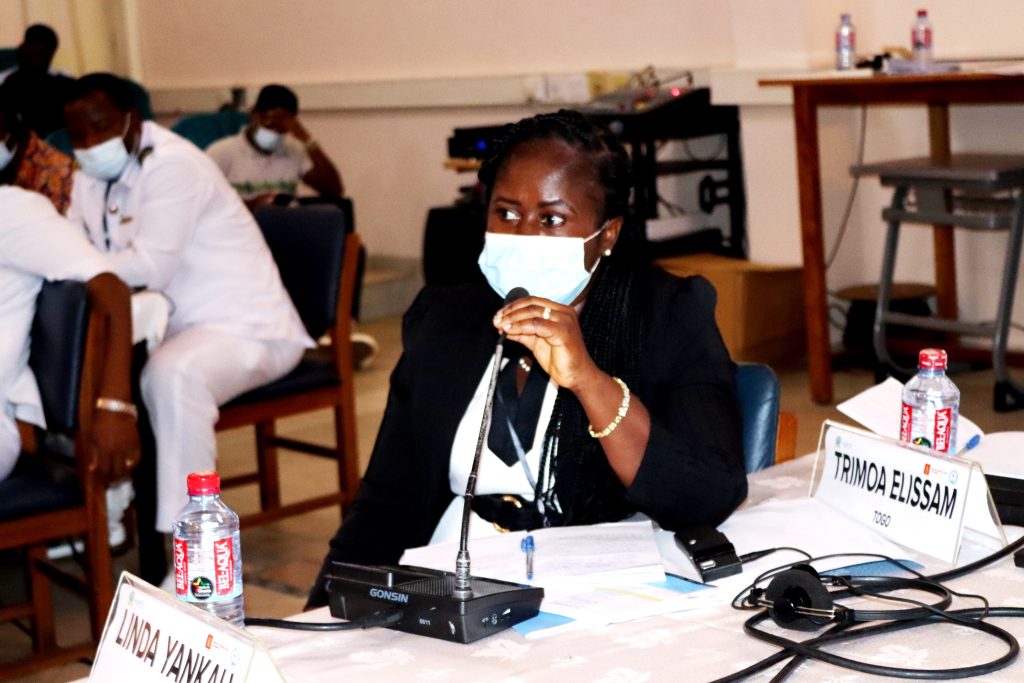
In his closing speech, the Commandant of the KAIPTC, reiterated that understanding the issues and the inter-linked nature of maritime security is a critical first step towards finding solutions to the insecurity in the Gulf of Guinea. He mentioned that maritime security is a shared one, and no agency or state for that matter can independently survive without collaboration and cooperation on how to harness and safeguard it for optimal use. He stated “Developing a maritime security culture means in this sense that all maritime actors in the Gulf of Guinea have a shared knowledge and harmonized approach in dealing with the insecurities in the region’s maritime environment”. From this, the participants were advised develop strategies that will improve collaboration and closer working relation at the regional and national level. The deputy commandant thanked the Government of Denmark and the Inter-Regional Coordinating Centre for their continuous support to the KAIPTC.
This training constituted the sixth training under the capacity building of the Gulf of Guinea project being implemented by the KAIPTC and the Government of Denmark. Similar to the other trainings, the participants were exposed to the maritime security situation in the Gulf of Guinea and the mechanism that have been put in place at the national and regional level to improved security in Gulf of Guinea waters. With the knowledge acquired by the participants, it is expected that they will support efforts by their national governments to develop and implement initiatives aimed at improving maritime security in their respective countries and the Gulf of Guinea region in general.
Reflections by Participants
I will Introduce aspects of the course in the training programme for young naval officers –
Participant, Ghana Navy.
The resources I have been exposed to will provide me with t gather accurate intelligence information on maritime crimes. As an intelligence analyst, my products will see an addition of predictive intelligence to aid in intelligence led operations.
Participant, Ghana Navy.
With the knowledge acquired from the training, I will have a better approach in dealing with threats at sea in the waters of my country. As an agent of justice intended to prosecute offenders at sea, I have understood the role that everyone must play in relation to the Yaoundé architecture.
Participant, Ministry of Justice, Congo Brazzaville.







